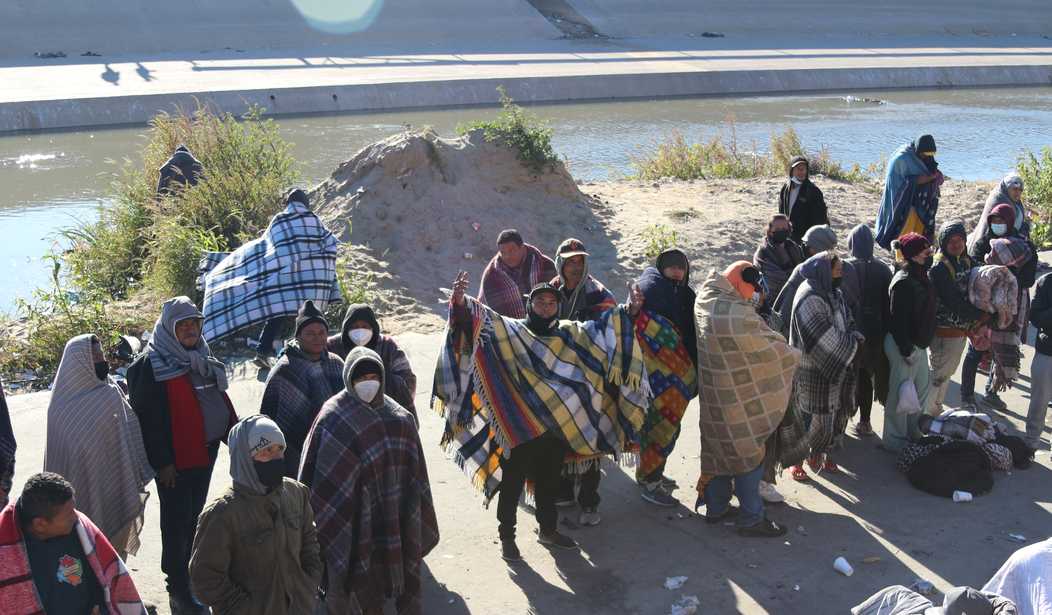Gell-Mann Amnesia is when someone reads an article in a newspaper on a topic they know quite well, recognizes every mistake in the story, and still accepts everything else in the paper at face value.
The fact that we have a name for this shows that the news is riddled with errors, but you'd think a behemoth like The New York Times could afford people to verify facts and ensure reporters are getting things right.
Or you wouldn't because it's The New York Times and it's more likely to fact-check a meme critical of Vice President Kamala Harris than actually do its job.
The reason I bring this up is because The Times did a story on illegal immigration, which it tries to claim is, in part, driven by American guns. The problem is, so much of what the paper is alleging is happening just isn't:
As I’ve talked to policy experts across a variety of fields, I’ve discovered how much the typical conversation about guns leaves out. Some of the United States’ most contentious and serious problems — from drugs to the economy — involve externalities from the production, sale and ownership of firearms. We can’t truly reckon with the costs of America’s abundance of guns until we consider the externalities.
‘Tools of Violence’ South of the Border
Take, for example, an issue that has been at the forefront of this year’s election: the U.S.-Mexico border.
If you look closely at illegal immigration, guns quickly come into view. Many migrants come to the United States to flee violence in their home countries. The reason they are fleeing is that criminal groups, from the biggest drug cartels in Mexico to the smallest street gangs in Honduras, are often able to carry out that violence with impunity.
How? Because they’re heavily armed — to the point that they can outgun local law enforcement. And where do they get those weapons? Mostly, the United States. The country’s lax laws allow smugglers to buy weapons at gun shows or online without background checks, for example, and then ship the firearms south.
I wonder what kind of "experts" the author spoke to. My guess is they're people who work for Everytown for Gun Safety, Giffords, or Brady and are, in fact, gun control advocates pretending to be experts on violence, violent crime, and the like.
Recommended
I say this because they apparently allowed the writer to believe that you can just buy guns online or at gun shows without a background check.
That's not the way things work.
If you're going to buy from a federally licensed firearms dealer (FFL), either online or at a gun show, there are rules that require background checks to be conducted. At a gun show, the dealer will conduct one. With an online sale, they won't send a gun to you directly unless you have an FFL of the appropriate type. Instead, they send it to a licensed dealer who will do the background check.
In a couple of instances, someone may meet up with a private party who isn't a manufacturer to a dealer at a gun show or through a website of some kind to conduct a face-to-face transfer. These don't require a background check in most states, but that's not the same thing as buying a gun online by any stretch of the imagination.
While one could argue that meeting an unlicensed seller at a gun show and buying the gun then and there is, in fact, buying at a gun show, it's not remotely at all where most guns are coming from. In fact, my own experiences at gun shows is that these unlicensed sellers – people selling their own guns rather than dealers of any stripe, even if they have a table to handle the selling – account for, at most, a fraction of the total guns sold at gun shows.
There's no way these two categories fuel the issues south of the border.
Yet, the writer doesn't stop there. He shows a little Gell-Mann Amnesia himself, in a way:
More than 67 percent of criminal guns recovered in Mexico and traced by the U.S. Bureau of Alcohol, Tobacco, Firearms and Explosives in 2021 were sourced to the United States. That might even be an underestimate. The 16 percent of guns that couldn’t be traced back to a country of origin might still have come from America. Most criminal guns in Central America also come from the United States, according to other A.T.F. data.
American guns “are the tools of violence,” Ieva Jusionyte, an anthropologist at Brown University who studies the U.S.-Mexico border, told me. “The U.S. is very much implicated in the violence in these countries.”
Omitted from this report is any mention of Operation Fast & Furious, also known as "Gunwalker," which made licensed dealers carry out what they knew to be illegal straw buys on the orders of the Bureau of Alcohol, Tobacco, Firearms and Explosives. The argument was that the guns would go south and the agency could trace them.
An untold number of guns were sold that way, then used to justify gun control in the United States, and it sounds like they're still doing it.
However, I can't help but notice another fact being omitted.
If guns are the problem, why are all the illegal aliens coming to a place that has even more of them than the violent hellholes they're supposedly running from?

























